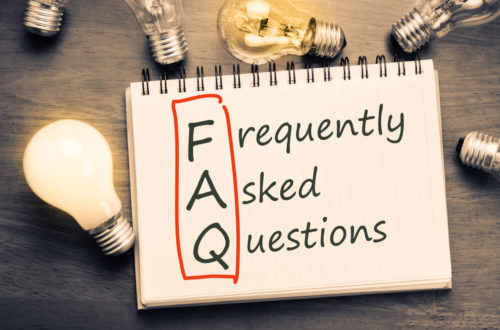
Answers to frequently asked questions about refugee resettlement
Nov 30, 2021
Lots of people have lots of questions as Afghan refugees begin arriving in communities in the Wisconsin Conference. Here is a list of frequently asked questions. We’ll continue to add to the list as the state and Conference refugee welcoming efforts unfold.
How many Afghan refugees are expected to settle in Wisconsin?
The Biden administration in September told Wisconsin officials to expect nearly 400 refugees.
Does Wisconsin have a history of helping refugees?
Yes. According to the Wisconsin Department of Children and Families, the first refugees to arrive in the state were Hmong from Laos, beginning in the 1970s. Many Hmong assisted U.S forces during the Vietnam War, fighting the North Vietnamese army and rescuing downed U.S. airmen. All told, more than 75,000 refugees have resettled in Wisconsin. That includes more than 16,000 from 50 different nations since 2000. In addition to the Hmong, the largest refugee groups in Wisconsin include Burmese, Somali, Bosnian and Iraqi. The majority of refugees in Wisconsin have achieved economic self-sufficiency.
How are refugees vetted?
The Department of Homeland Security has deployed about 300 people from Customs and Border Protection, Immigration and Customs Enforcement, the Transportation Security Administration, U.S. Coast Guard and U.S. Secret Service to Bahrain, Germany, Kuwait, Italy, Qatar, Spain and the United Arab Emirates to conduct processing, screening, and vetting of Afghan nationals in coordination with the Departments of Defense and State and other federal agencies.
The vetting process involves biometric and biographic screenings conducted by intelligence, law enforcement and counterterrorism professionals from the departments of Homeland Security and Defense, along with the FBI, National Counterterrorism Center and additional partners from the intelligence community. More information.
What are the initial services needed by newly arrived refugees?
They’re surprisingly simple. Refugees need a warm welcome and pick-up at the airport and transportation to housing that has been prepared for them. A hot meal should be awaiting them that consists of food they would be accustomed to eating. It could come from a restaurant that serves Middle Eastern or South Asian food.
Refugees also need transportation to appointments that are essential to getting them settled in their new homes, places like the nearest Social Security office, the schools where they will enroll their children, the resettlement agency to meet with their case manager, social service agencies where they can sign up for benefits available for refugees like Refugee Medical Assistance which they may access for the first eight months. Transportation also includes an orientation to the local public transit system.
Many of the newcomers also will need to be connected to English classes and employment offices.
What are the most urgently needed items?
Rental apartments and duplexes are high on the list, along with cash to cover rent payments or hotel stays for up to six months. Housing units need to be clean, safe and furnished, and will likely have to pass inspection by the resettlement agency in your region. They also need to be stocked with food like canned goods, milk, rice and other staples. Beyond that, agencies are seeking donations of hygiene products, e.g., soap, shampoo, toothpaste and other personal care items; household items like pots and pans, dish towels and eating utensils; and cleaning supplies, e.g., dish soap, laundry detergent and sponges. Lutheran Social Services has complied a complete list of home supplies.
My congregation wants to help a refugee family get settled. What’s a good way to do that?
The six resettlement agencies in Wisconsin need faith communities and other community groups to co-sponsor refugees and are accepting inquiries now. Co-sponsorship is designed to get refugees settled in their permanent homes as swiftly as possible. Co-sponsors help with activities that include furnishing apartments, performing regular check-ins to ensure refugees’ needs are met, and helping the new arrivals navigate an unfamiliar culture. Securing sustainable employment for refugees is an important part of the process, and resettlement agencies work with both co-sponsors and refugees to identify job opportunities. Full co-sponsorship includes providing financial assistance for the support of an individual or family. Training is provided to co-sponsors. The goal is to help them become self-sufficient.
If your congregation is interested in co-sponsorship, alone or in collaboration with another group, contact one of these agencies participating in the Afghan Assistance and Placement Program: Lutheran Social Services, based in Milwaukee ;the International Institute of Wisconsin, also in Milwaukee; Catholic Charities of the Diocese of Green Bay; World Relief; Jewish Social Services of Madison; or Ethiopian Community Development Council, which has opened an office in Wausau. A good first step if your UCC congregation wants to get involved is to contact Mary Kuenning Gross at 262-271-8990, or email her at marykgross@gmail.com. Mary is the partner-in-service volunteer coordinating the Wisconsin Conference’s Welcoming our Afghan Allies initiative.
Sources: Mary Kuenning Gross, Wisconsin Department of Children and Families, Department of Homeland Security, Lutheran Social Services; Catholic Social Services of the Diocese of Green Bay.
‹ Back to News & Updates



Sign up for our newsletter!
Find us on
Contact Us